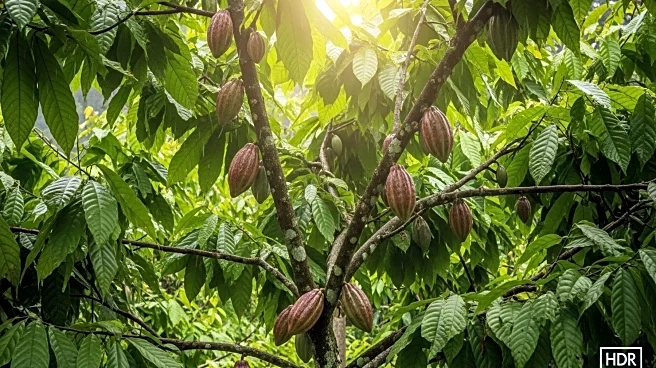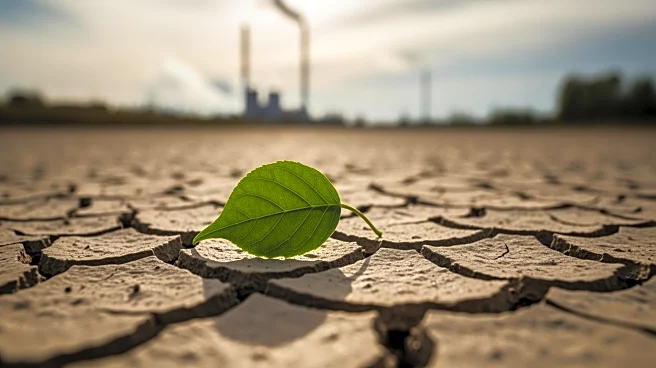What is the story about?
What's Happening?
Nestlé is navigating a significant cocoa crisis, marked by a quadrupling of cocoa prices due to climate change impacts on production. The crisis, concentrated in West Africa, has led to shortages affecting chocolate makers globally. Nestlé's cocoa manager, Darrell High, attributes the crisis to changing weather patterns, which have resulted in lower yields. To manage the situation, Nestlé has secured its supply through long-term partnerships with farmers and diversification of sourcing from Latin America. The company is also implementing sustainability programs to boost farmer income and productivity, aiming to build resilience against future climate-related disruptions.
Why It's Important?
The cocoa crisis has profound implications for the chocolate industry, affecting pricing and supply chains. Nestlé's approach highlights the importance of sustainability and long-term planning in mitigating climate change impacts. By supporting farmers through initiatives like the Cocoa Plan and Income Accelerator Programme, Nestlé is not only securing its supply but also enhancing the livelihoods of cocoa farmers. This strategy is crucial for maintaining consumer trust and meeting increasing demands for sustainable practices. The crisis underscores the need for the industry to adapt to environmental changes to ensure future supply stability.
What's Next?
Nestlé is focusing on agroforestry initiatives to protect cocoa trees and futureproof its supply. The company is encouraging farmers to integrate forest and fruit trees into cocoa plantations to provide shade and resilience against droughts. These efforts are part of a broader strategy to adapt to climate change and ensure long-term sustainability. As consumer expectations for sustainability grow, Nestlé's proactive measures may set a precedent for the industry. Continued investment in farmer partnerships and diversification of sourcing will be critical in navigating future challenges.
Beyond the Headlines
The cocoa crisis highlights the ethical and environmental dimensions of global supply chains. Nestlé's initiatives reflect a shift towards more responsible sourcing and production practices. The company's focus on farmer welfare and environmental sustainability may influence broader industry standards. As climate change continues to impact agricultural production, companies like Nestlé are likely to play a pivotal role in driving innovation and resilience in food supply chains.














